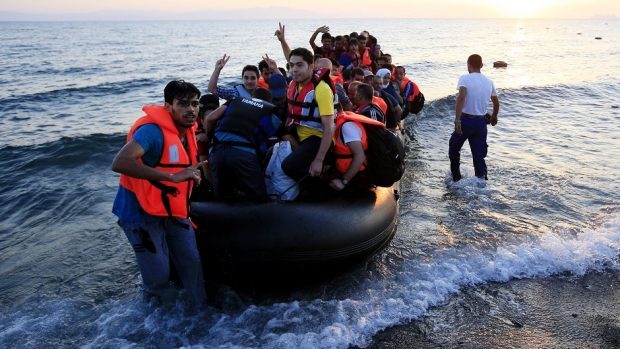A total of 30 refugees from war torn Syria have settled in Aberdeen this year with council chiefs preparing for the imminent arrival of more.
A report to be presented next week to the council’s infrastructure committee said the incomers had arrived on two separate flights from the Middle East on March 2 and 3.
In a bid to discourage illegal migration into Europe, the British Government is taking vulnerable people directly from refugee camps in Syria and neighbouring countries.
After leaving the camps, they will be settled by different local authorities across Britain.
The council has worked closely with community and religious groups to help the Syrians fit in and adjust to life in Scotland.
Around 100 in total are expected to arrive this year.
A report to committee reads: “Since the expansion of the scheme in September, 30 Syrian refugees have been settled in the local area.
“Two flights arrived in Aberdeen on March 2 and 3, 2016 bringing 15 Syrian refugees on each. This included nine households made up of seven families, two siblings and one single adult.
“Community Planning Aberdeen continues to lead Aberdeen’s response to the Syrian Refugee Crisis. Following evaluation and implementation of any recommendations, we are looking to commence phase two of resettlement planning.
“We are keen to feedback our learning to them regarding refugee experiences in Aberdeen.
“Public support continues to be positive and supportive. Families have reported that neighbours are warm and helpful and we’ve seen a positive response to our community engagement activities being delivered by Montgomery Development Education Centre.”
Barney Crockett, former council leader and now fronting the hydrogen project, said that Aberdeen had never suffered from tensions between different communities like in some English cities.
He said: “The welcome for the incomers has been intense from Aberdeen, it’s an international city that doesn’t look inwards.
“There also isn’t the same competition for jobs here so I think that doesn’t lead to the same sort of resentment from settled people.
“Historically Aberdeen never experienced big influxes of immigrants in the 30s and 60s because, ironically, at the time the wages were among the lowest in mainland Britain.”
